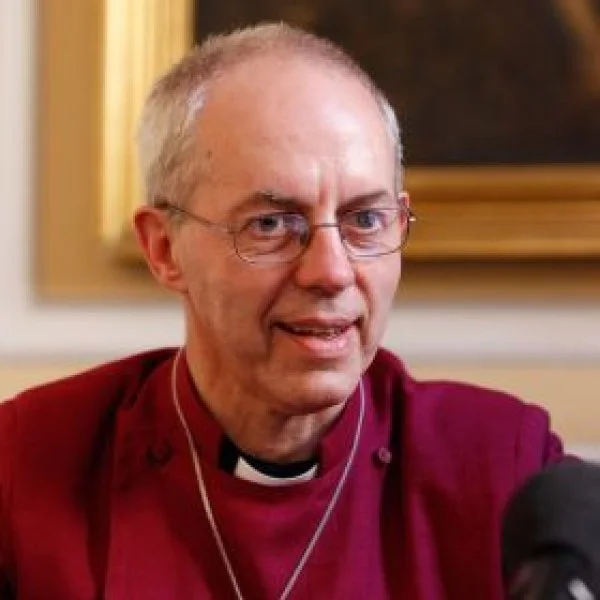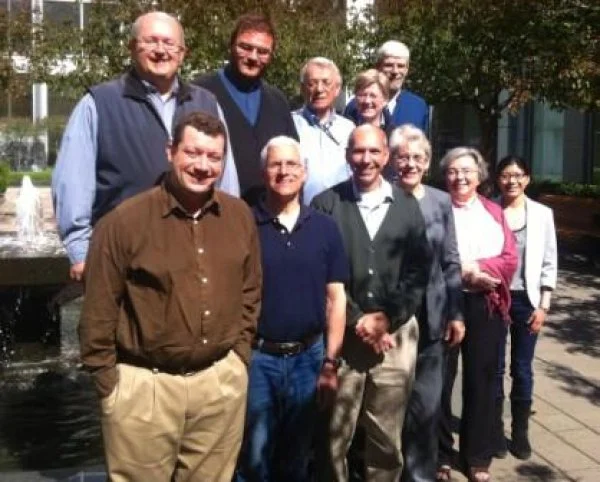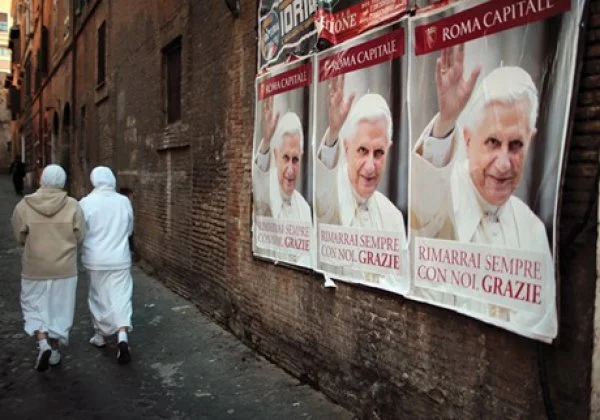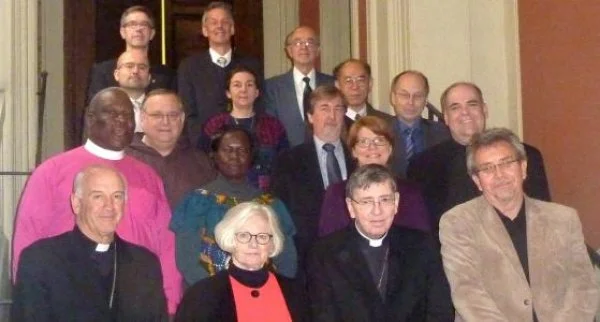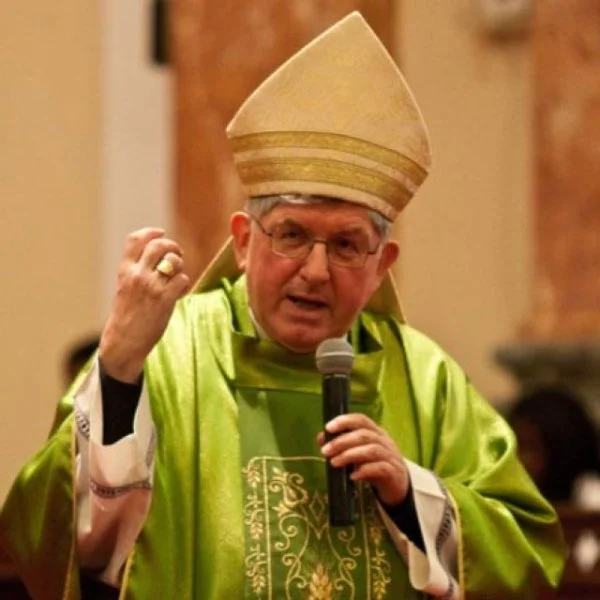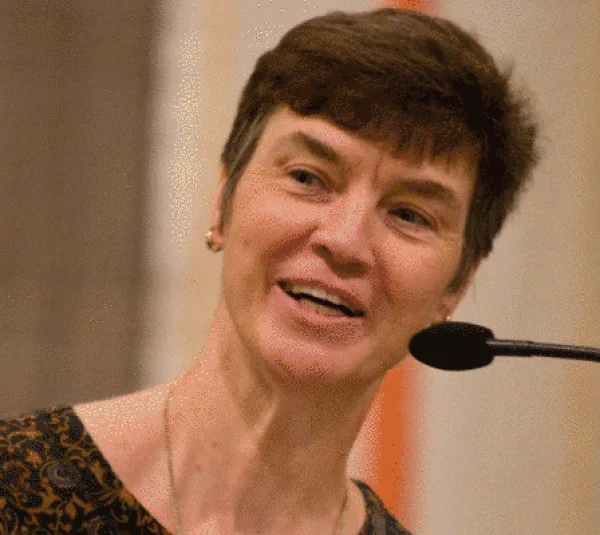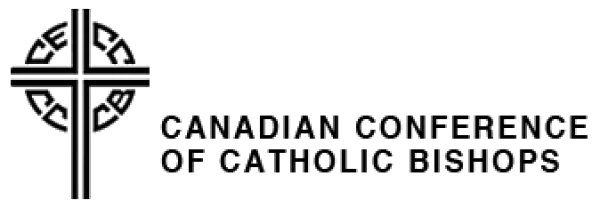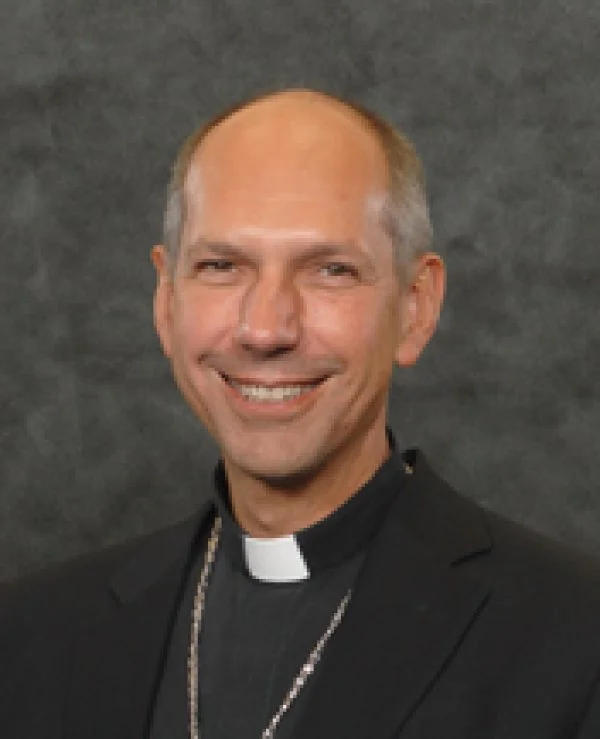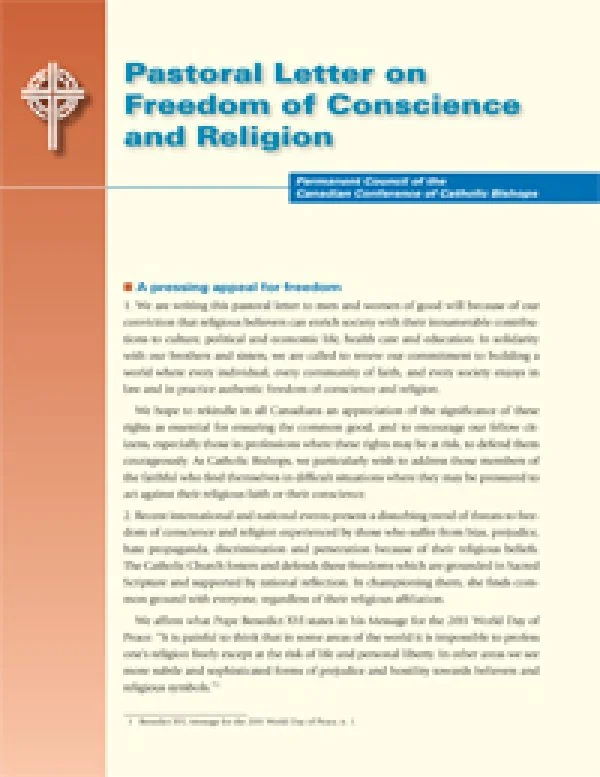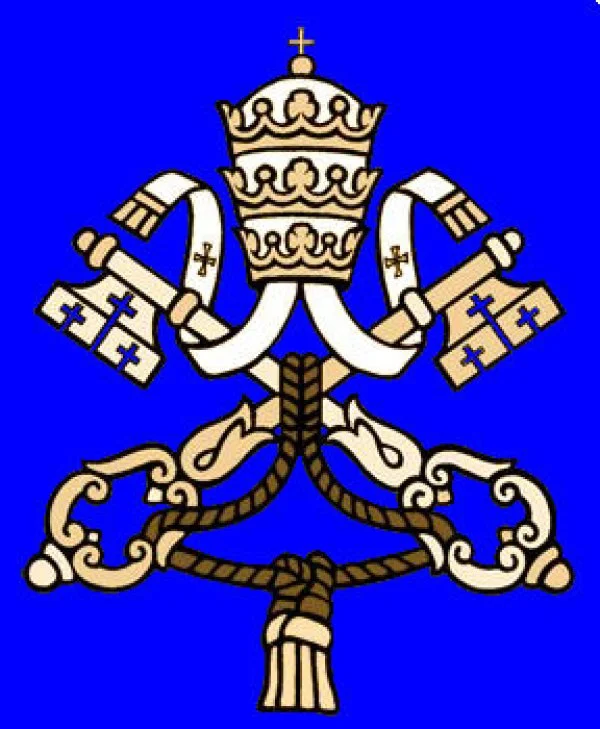- Français
- |
- Booklist
- |
- Week of Prayer
- |
- Links
- Areopagus - a forum for dialogue
- Academic journals
- Acronyms
- Bible tools
- Bibliographies
- Booksellers and publishers
- Churches
- Canadian church headquarters
- Directory of Saskatchewan churches
- Retreat centres
- Saskatchewan church and non-profit agencies
- Ecumenism.net Denominational links
- Anabaptist & Mennonite
- Anglican
- Baptist
- Evangelical
- Independent episcopal
- Lutheran
- Methodist, Wesleyan, and Holiness
- Miscellaneous
- Mormon
- Orthodox (Eastern & Oriental)
- Para-church ministries
- Pentecostal / charismatic
- Presbyterian & Reformed
- Quaker (Society of Friends)
- Roman & Eastern Catholic
- United and uniting
- Documents of Ecumenical Interest
- Ecumenical agencies
- Ecumenical Booklist
- Ecumenical Dialogues
- Glossary
- Human rights
- Inter-religious links
- Justice & peace
- Lectionaries
- Religious news services
- Resource pages
- Search Ecumenism.Net
- |
- Documents
- Ancient & Medieval texts
- Ecumenical Dialogues
- Interreligious
- Anabaptist & Mennonite
- Anglican
- Evangelical
- Lutheran
- Orthodox
- Reformed & Presbyterian
- Roman & Eastern Catholic
- United & Uniting
- Miscellaneous churches
- Canadian Council of Churches (CCC)
- Conference of European Churches (CEC)
- Interchurch Families International Network (IFIN)
- National Council of Churches in Australia (NCCA)
- Lausanne Committee for World Evangelism (LCWE)
- World Council of Churches (WCC)
- Other ecumenical documents
Church traditions
Documents from ecumenical agencies
- |
- Dialogues
- Adventist-Reformed
- African Instituted Churches-Reformed
- Anglican-Lutheran
- Anglican-Orthodox
- Anglican-Reformed
- Anglican-Roman Catholic
- Anglican-United/Uniting
- Baptist-Reformed
- Disciples of Christ-Reformed
- Disciples of Christ-Roman Catholic
- Evangelical-Roman Catholic
- Lutheran-Mennonite
- Lutheran-Mennonite-Roman Catholic
- Lutheran-Reformed
- Lutheran-Roman Catholic
- Mennonite-Reformed
- Mennonite-Roman Catholic
- Methodist-Reformed
- Methodist-Roman Catholic
- Oriental Orthodox-Reformed
- Orthodox-Reformed
- Orthodox-Roman Catholic
- Pentecostal-Reformed
- Prague Consultations
- REC-WARC Consultations
- Roman Catholic-Lutheran-Reformed
- Roman Catholic-Reformed
- Roman Catholic-United Church of Canada
- |
- Quick links
- Canadian Centre for Ecumenism
- Canadian Council of Churches
- Ecumenical Shared Ministries
- Ecumenism in Canada
- Interchurch Families International Network
- International Anglican-Roman Catholic Commission for Unity and Mission
- Kairos: Canadian Ecumenical Justice Initiatives
- North American Academy of Ecumenists
- Prairie Centre for Ecumenism
- Réseau œcuménique justice et paix
- Week of Prayer for Christian Unity
- Women's Interchurch Council of Canada
- World Council of Churches
- |
- Archives
- |
- About us
Archive for tag: Catholic
Archive pour tag : Catholic
Events in Christianity that led to the Reformation nearly half a millennium ago split the Roman Catholic Church, ushering the advent of Protestant churches.
When the 500th anniversary is commemorated in 2017, Lutherans and Catholics hope to be drawn closer in the quest for church unity.
Catholic and Lutherans announced a special joint publication Monday entitled From Conflict to Communion for this that helps bury many past differences and brings Catholics and Lutherans closer together.
“The awareness is dawning on Lutherans and Catholics that the struggle of the 16th century is over,” the report said. “The reasons for mutually condemning each other’s faith have fallen by the wayside.”
… Read more » … lire la suite »

 Permanent link: ecumenism.net/?p=6284
Permanent link: ecumenism.net/?p=6284
Categories: News • In this article: Catholic, Dicastery for Promoting Christian Unity, Lutheran World Federation, Reformation

 Lien permanente : ecumenism.net/?p=6284
Lien permanente : ecumenism.net/?p=6284
Catégorie : News • Dans cet article : Catholic, Dicastery for Promoting Christian Unity, Lutheran World Federation, Reformation
Pope Francis and Anglican Archbishop Justin Welby of Canterbury, spiritual leader of the Anglican Communion, pledged to support each other with their prayers and to continue the search for full unity between their communities.
Meeting at the Vatican June 14, praying together in the Redemptoris Mater Chapel in the Apostolic Palace and eating lunch together in the papal residence, both remarked on the fact that Pope Francis’ inaugural Mass was celebrated March 19 and Archbishop Welby’s installation was March 21.
“Since we began our respective ministries within days of each other, I think we will always have a particular reason to support one another in prayer,” Pope Francis said. He also thanked the new Anglican leader for praying for him during his installation at Canterbury Cathedral.
Archbishop Welby told him, “I pray that the nearness of our two inaugurations may serve the reconciliation of the world and the church.”
… Read more » … lire la suite »

 Permanent link: ecumenism.net/?p=6272
Permanent link: ecumenism.net/?p=6272
Categories: CNS • In this article: Anglican, Archbishop of Canterbury, Catholic, Pope Francis

 Lien permanente : ecumenism.net/?p=6272
Lien permanente : ecumenism.net/?p=6272
Catégorie : CNS • Dans cet article : Anglican, Archbishop of Canterbury, Catholic, Pope Francis
Inspirés par l’exhortation de l’apôtre Pierre à défendre« l’espérance qui esten vous » (1 Pierre 3,15), les membres du Dialogue anglican et catholique romain du Canada (ARC du Canada) travaillent sur un projet visant à unir leurs voix pour rendre compte de cette foi.
En utilisant comme point de départ certaines des questions fondamentales qui préoccupent encore aujourd’hui pratiquants autant que non-pratiquants, les membres de l’ARC du Canada rédigeront divers articles, concis et intelligibles, offrant des réponses basées sur la tradition chrétienne commune partagée par les catholiques et les anglicans.
Parmi les questions qui seront abordées par le projet de Témoignage Commun on peut retrouver: Pourquoi croire? Pourquoi le monde est-il comme il est? Quelle est ma mission dans la vie? La science et la foi sont-elles compatibles? À quoi sert l’église? Est-ce souffrir sert à quelque chose? Est-ce tout ira bien?
… Read more » … lire la suite »

 Permanent link: ecumenism.net/?p=4611
Permanent link: ecumenism.net/?p=4611
Categories: Communiqué, News • In this article: Anglican, Canada, Catholic, dialogue, ecumenism, witness

 Lien permanente : ecumenism.net/?p=4611
Lien permanente : ecumenism.net/?p=4611
Catégorie : Communiqué, News • Dans cet article : Anglican, Canada, Catholic, dialogue, ecumenism, witness
Inspired by the apostle Peter’s exhortation to offer “an account of the hope that is in you” (1 Peter 3:15), members of the Anglican-Roman Catholic Dialogue of Canada (ARC Canada) are working on a project aimed at giving such an account with one voice.
Using as their starting point some of the fundamental questions that continue to be asked by people inside and outside the church, members of ARC Canada are composing short, accessible pieces of writing that offer responses rooted in the common Christian tradition shared by Catholics and Anglicans.
Among the questions being addressed by the Common Witness Project are: Why believe? Why is the world the way it is? What is my mission in life? Are science and faith compatible? What good is the church? Is suffering good for anything? Will it be okay?
… Read more » … lire la suite »

 Permanent link: ecumenism.net/?p=4594
Permanent link: ecumenism.net/?p=4594
Categories: Communiqué, News • In this article: Anglican, Canada, Catholic, dialogue, ecumenism, witness

 Lien permanente : ecumenism.net/?p=4594
Lien permanente : ecumenism.net/?p=4594
Catégorie : Communiqué, News • Dans cet article : Anglican, Canada, Catholic, dialogue, ecumenism, witness
A couple of interesting ecumenical developments occurred of late regarding [Catholic] relations with the Coptic Orthodox Church and the Anglican Communion. First, His Holiness Tawadros II, the Pope of Alexandria and Patriarch of the Coptic Orthodox Church, has been on an official visit to Rome (since the third century the Patriarchs of Alexandria have used the title “pope”). He arrived on May 9 and left May 13. The visit marked the first time that Pope Francis has received the head of another Christian church or ecclesial community since his installation in March, and it is also Pope Tawadros’ first trip outside Egypt since his election last November.
… Read more » … lire la suite »

 Permanent link: ecumenism.net/?p=4531
Permanent link: ecumenism.net/?p=4531
Categories: News • In this article: Anglican, Catholic, Coptic, ecumenism, Pope Francis

 Lien permanente : ecumenism.net/?p=4531
Lien permanente : ecumenism.net/?p=4531
Catégorie : News • Dans cet article : Anglican, Catholic, Coptic, ecumenism, Pope Francis
The visit of Tawadros II, Pope of Alexandria and Patriarch of the See of St. Mark, “strengthens the bonds of friendship and brotherhood that already exist between the See of Peter and the See of Mark, heir to an inestimable heritage of martyrs, theologians, holy monks, and faithful disciples of Christ, who have borne witness to the Gospel from generation to generation, often in situations of great adversity,” said Pope Francis on receiving the head of the Coptic Orthodox Church of Egypt this morning. The pontiff remarked on the memorable meeting that took place, 40 years ago, between the predecessors of both, Pope Paul VI and Pope Shenouda III, which united them “in an embrace of peace and fraternity, after centuries of mutual distance.”
… Read more » … lire la suite »

 Permanent link: ecumenism.net/?p=3944
Permanent link: ecumenism.net/?p=3944
Categories: News • In this article: Catholic, Christian unity, Coptic, ecumenism, Oriental Orthodox, patriarch, Pope Francis, Vatican

 Lien permanente : ecumenism.net/?p=3944
Lien permanente : ecumenism.net/?p=3944
Catégorie : News • Dans cet article : Catholic, Christian unity, Coptic, ecumenism, Oriental Orthodox, patriarch, Pope Francis, Vatican
For the first time, Lutherans and Roman Catholics at the global level have worked together to tell the story of the Reformation as part of their commitment to deepen Christian unity.
The publication From Conflict to Communion will be published this month by the Lutheran – Roman Catholic Commission on Unity. The commission is mandated by The Lutheran World Federation (LWF) and the Vatican’s Pontifical Council for Promoting Christian Unity (PCPCU) to facilitate the global ecumenical dialogue between the two Christian World Communions.
LWF Assistant General Secretary for Ecumenical Relations Rev. Dr Kaisamari Hintikka said the publication From Conflict to Communion: Lutheran–Roman Catholic Common Commemoration of the Reformation in 2017 contributes to strengthening the commitment to work for the visible unity of the Church. It will be presented to the LWF Council at its meeting this June.
… Read more » … lire la suite »

 Permanent link: ecumenism.net/?p=4535
Permanent link: ecumenism.net/?p=4535
Categories: Dialogue, News • In this article: Catholic, dialogue, ecumenism, Lutheran, Lutheran World Federation, Reformation

 Lien permanente : ecumenism.net/?p=4535
Lien permanente : ecumenism.net/?p=4535
Catégorie : Dialogue, News • Dans cet article : Catholic, dialogue, ecumenism, Lutheran, Lutheran World Federation, Reformation
Catholic and Anglican ecumenical experts meeting in Rio de Janeiro have made progress towards their goal of a common statement on relations between the local and universal Church. This third meeting of the Anglican-Roman Catholic International Commission (ARCIC III) has also been exploring the ways in which both communities make decisions regarding moral and ethical issues. During the week-long meeting which concluded on Monday, participants met with local Anglican and Catholic leaders to find out about local ecumenical initiatives. They spent a day in the ‘Cidade de Deus’ or City of God, one of the many slum areas around Rio de Janeiro, where the churches are working closely with police and other civic authorities to provide services and support community development.Members of the Commission described the meeting as a hope filled encounter and plan to hold the next ARCIC III session from May 12th to 20th, 2014.
… Read more » … lire la suite »

 Permanent link: ecumenism.net/?p=3937
Permanent link: ecumenism.net/?p=3937
Categories: Communiqué • In this article: Anglican, ARCIC, Catholic, Christian unity, dialogue, ecclesiology, ecumenism, ethics

 Lien permanente : ecumenism.net/?p=3937
Lien permanente : ecumenism.net/?p=3937
Catégorie : Communiqué • Dans cet article : Anglican, ARCIC, Catholic, Christian unity, dialogue, ecclesiology, ecumenism, ethics
Reformed and Catholic theologians recently concluded the latest in a decades-long series of ongoing international talks on a matter theologians see as central to the disputes of the Reformation era. Theologians from the World Communion of Reformed Churches and the Pontifical Council for Promoting Christian Unity met from April 7-13 as part of the third session in the fourth phase of the Catholic-Reformed dialogue which will conclude in 2017. The theme of the phase is “Justification and Sacramentality: The Christian Community as an Agent for Justice.” The talks began in 1970. The next meeting in the series will take place in Scotland. The themes to be covered are Justification: Holy Communion/Eucharist and Justice” and “Justification and Justice: Sanctification/ Universal Call to Holiness.” The ongoing dialogue could eventually determine if the World Communion of Reformed Churches aligns itself with a joint document on the doctrine of justification agreed to by Roman Catholics and a top Lutheran body in 1999.
… Read more » … lire la suite »

 Permanent link: ecumenism.net/?p=3663
Permanent link: ecumenism.net/?p=3663
Categories: Communiqué, News • In this article: Catholic, Christian unity, dialogue, Dicastery for Promoting Christian Unity, ecumenism, Reformed churches, World Communion of Reformed Churches

 Lien permanente : ecumenism.net/?p=3663
Lien permanente : ecumenism.net/?p=3663
Catégorie : Communiqué, News • Dans cet article : Catholic, Christian unity, dialogue, Dicastery for Promoting Christian Unity, ecumenism, Reformed churches, World Communion of Reformed Churches
Pope Francis has set up an advisory board of eight cardinals from around the world to help him govern the Catholic Church and to help him reform it. Briefing journalists Saturday the head of the Holy See press office, Rev. Federico Lombardi, said the communiqué came exactly one month since Pope Francis’ election following the February 11 resignation of his predecessor Pope Benedict XVI. He said it shows that Pope Francis “listens attentively” to the suggestions of the College of Cardinals – his closest collaborators. The formation of the group came after reading the mood of cardinals at the conclave that elected the pontiff on March 13. That meeting took place behind closed doors. The Vatican spokesman also noted that the group will have no legislative power and that its main function is to “help” and “advise” the Pope. Lombardi also noted the advisers would in no way interfere in the normal functions of the Roman Curia, the body responsible for daily governance of the Vatican and the Catholic Church.
… Read more » … lire la suite »

 Permanent link: ecumenism.net/?p=3673
Permanent link: ecumenism.net/?p=3673
Categories: News • In this article: Catholic, Pope Francis, Vatican

 Lien permanente : ecumenism.net/?p=3673
Lien permanente : ecumenism.net/?p=3673
Catégorie : News • Dans cet article : Catholic, Pope Francis, Vatican
When the new pope is consecrated, he will inherit a troubled global church. Internal scandal and unaddressed external problems pose great risks to the vitality of Catholicism. But the consequences of success or failure are huge for the church universal, the world’s 2.1 billion Christians of every denomination. This is more than a butterfly effect. Rome is not Las Vegas—what happens in Rome will not stay within the borders of Vatican City. One consequence of globalization is that the walls that have long divided Catholics from Orthodox, mainline Protestants, evangelicals, and Pentecostals are eroding.
Brian Stiller, a global ambassador for the World Evangelical Alliance, commenting about Catholic and evangelical relations, wrote on his blog recently, “Not in 500 years have the two sides been so close and friendly.”
… Read more » … lire la suite »

 Permanent link: ecumenism.net/?p=6552
Permanent link: ecumenism.net/?p=6552
Categories: Evangelical-Roman Catholic Dialogue, Opinion • In this article: Catholic, ecumenism, Evangelicals, papacy

 Lien permanente : ecumenism.net/?p=6552
Lien permanente : ecumenism.net/?p=6552
Catégorie : Evangelical-Roman Catholic Dialogue, Opinion • Dans cet article : Catholic, ecumenism, Evangelicals, papacy
The future of Anglican-Roman Catholic relations is, in part, down to who will succeed Pope Benedict, according to the archbishop of Canterbury’s representative to the Holy See.
Responding to today’s surprise resignation of Pope Benedict XVI, the Very Rev. David Richardson said the implications for Anglican-Roman Catholic relations in the long term “will depend on who is elected to succeed him.”
However, Richardson, who is also director of the Anglican Centre in Rome, said that other relationships continue despite the change in leadership.
… Read more » … lire la suite »

 Permanent link: ecumenism.net/?p=13294
Permanent link: ecumenism.net/?p=13294
Categories: ACNS • In this article: Anglican, Catholic, Pope Benedict XVI

 Lien permanente : ecumenism.net/?p=13294
Lien permanente : ecumenism.net/?p=13294
Catégorie : ACNS • Dans cet article : Anglican, Catholic, Pope Benedict XVI
In a surprise announcement, this morning Pope Benedict XVI informed the cardinals gathered in Consistory that he has decided to resign effective February 28 for health reasons. The resignation apparently surprised even his closest of aides. The last pope to resign was Gregory XII in 1415 during the Council of Constance as a means of resolving the Western Schism. The Vatican expects a conclave will elect the next pope before the end of March. According to the BBC, Benedict XVI is not expected to take part in the conclave to elect his successor. The Vatican spokesman, Fr Federico Lombardi, announced that Benedict would retire to Castel Gandolfo after his resignation. More details are expected in the coming weeks.
… Read more » … lire la suite »

 Permanent link: ecumenism.net/?p=2939
Permanent link: ecumenism.net/?p=2939
Categories: News • In this article: Catholic, Pope Benedict XVI

 Lien permanente : ecumenism.net/?p=2939
Lien permanente : ecumenism.net/?p=2939
Catégorie : News • Dans cet article : Catholic, Pope Benedict XVI
The meeting of the Roman Catholic-United Church of Canada dialogue group which I attended in October reaffirmed the report on marriage that was submitted to our sponsoring bodies last spring. I have had the pleasure to be a part of this dialogue for the last 5 years as we discussed the often personal topic of marriage and our churches’ policies regarding marriage. What could have been a very confrontational discussion ended up being a wonderful celebration of the ideals of the institution as well as the rites involved in a wedding. Indeed, our two churches have much in common around marriage.
… Read more » … lire la suite »

 Permanent link: ecumenism.net/?p=2902
Permanent link: ecumenism.net/?p=2902
Categories: Communiqué • In this article: Canada, Catholic, Christian unity, dialogue, ecumenism, UCC, United Church of Canada

 Lien permanente : ecumenism.net/?p=2902
Lien permanente : ecumenism.net/?p=2902
Catégorie : Communiqué • Dans cet article : Canada, Catholic, Christian unity, dialogue, ecumenism, UCC, United Church of Canada
While the Catholic Church and the United Church aren’t about to agree about same-sex marriage (Catholic against, United in favour), the official Roman Catholic-United Church of Canada Dialogue has found significant common ground in their theologies, liturgies and pastoral approaches. “In the end it is good news that we were able to say something together on marriage,” said Michael Attridge, a University of St. Michael’s College theology professor who was one of the Catholic representatives on the dialogue. “A very important topic — something that’s very important to both our Churches.” The 23-page final report on marriage makes no change in either Church’s teaching on marriage and does not try to paper over significant differences on same-sex marriage, divorce and marriage as a sacrament. However, by analysing the Catholic and United Church marriage ceremonies and official Church documents, the dialogue found common ground. Both believe marriage must be the free choice of the spouses, is intended to be a lifelong commitment, is “a commitment to self-transcendence” which serves not just the couple but children and the whole community, is a vocation to holiness, and pastorally marriage preparation is important. The Churches decided to tackle marriage in their official dialogue after the United Church and Canadian Conference of Catholic Bishops found themselves submitting opposing factums to the Supreme Court in 2004, before the court ruled on the constitutionality of same-sex marriage.
… Read more » … lire la suite »

 Permanent link: ecumenism.net/?p=7606
Permanent link: ecumenism.net/?p=7606
Categories: Catholic Register • In this article: Catholic, dialogue, marriage, United Church of Canada

 Lien permanente : ecumenism.net/?p=7606
Lien permanente : ecumenism.net/?p=7606
Catégorie : Catholic Register • Dans cet article : Catholic, dialogue, marriage, United Church of Canada
Following remarks by Archbishop Gerhard Ludwig Müller, prefect of the Congregation for the Doctrine of the Faith, at an 11 January 2013 book launch in Rome that the Vatican might consider an ordinariate for Lutherans within the Roman Catholic Church, Lutheran World Information asked LWF General Secretary Rev. Martin Junge to reflect on the implications
… Read more » … lire la suite »

 Permanent link: ecumenism.net/?p=4727
Permanent link: ecumenism.net/?p=4727
Categories: News • In this article: Catholic, Lutheran World Federation

 Lien permanente : ecumenism.net/?p=4727
Lien permanente : ecumenism.net/?p=4727
Catégorie : News • Dans cet article : Catholic, Lutheran World Federation
À la suite des remarques formulées par l’archevêque Gerhard Ludwig Müller, préfet de la Congrégation pour la doctrine de la foi, à l’occasion du lancement d’un livre le 11 janvier 2013 à Rome, indiquant que le Vatican pourrait envisager de créer un ordinariat pour les luthériens au sein de l’Église catholique romaine, Lutheran World Information
… Read more » … lire la suite »

 Permanent link: ecumenism.net/?p=4730
Permanent link: ecumenism.net/?p=4730
Categories: Lutheran World Information • In this article: Catholic, Lutheran World Federation

 Lien permanente : ecumenism.net/?p=4730
Lien permanente : ecumenism.net/?p=4730
Catégorie : Lutheran World Information • Dans cet article : Catholic, Lutheran World Federation
Un dialogue international trilatéral entre mennonites, catholiques et luthériens a eu lieu pour la première fois à Rome, du 9 au 13 décembre 2012.
Un communiqué commun publié après la réunion de Rome annonce le thème général de ce processus de cinq ans : ‘Baptême et intégration dans le Corps du Christ, l’Église’. Le communiqué précise : « Ce forum trilatéral innovant permettra d’aborder des questions concernant la théologie et la pratique du baptême dans chaque communion ».
Les trois communions internationales ont déjà eut des dialogues bilatéraux les unes avec l’autre. Elles ont décidé ensemble d’avoir des conversations à trois sur le baptême, un sujet qui avait fait surface lors des échanges précédents.
… Read more » … lire la suite »

 Permanent link: ecumenism.net/?p=10810
Permanent link: ecumenism.net/?p=10810
Categories: Dialogue, News • In this article: Catholic, Dicastery for Promoting Christian Unity, Lutheran World Federation, Mennonite World Conference

 Lien permanente : ecumenism.net/?p=10810
Lien permanente : ecumenism.net/?p=10810
Catégorie : Dialogue, News • Dans cet article : Catholic, Dicastery for Promoting Christian Unity, Lutheran World Federation, Mennonite World Conference
An international trilateral dialogue between Mennonites, Catholics and Lutherans began in Rome, 9-13 December 2012.
According to a joint release issued after the Rome meeting, the overall theme of the five-year process is “Baptism and Incorporation into the Body of Christ, the Church.” The release further stated: “This innovative trilateral forum will allow the dialogue to take up questions surrounding the theology and practice of baptism in the respective communions.”
The three international communions came to the inaugural meeting with a history of bilateral dialogues with each other. They mutually agreed to hold three-way talks on baptism, a topic that had surfaced in earlier exchanges.
… Read more » … lire la suite »

 Permanent link: ecumenism.net/?p=2827
Permanent link: ecumenism.net/?p=2827
Categories: Communiqué, News • In this article: baptism, Catholic, Christian unity, ecumenism, Lutheran, Lutheran World Federation, Mennonite, Mennonite World Conference

 Lien permanente : ecumenism.net/?p=2827
Lien permanente : ecumenism.net/?p=2827
Catégorie : Communiqué, News • Dans cet article : baptism, Catholic, Christian unity, ecumenism, Lutheran, Lutheran World Federation, Mennonite, Mennonite World Conference
The head of the traditionalist Society of St. Pius X said he has been receiving mixed messages from the Vatican for years over if and how the group might be brought back into full communion with the church. Bishop Bernard Fellay, superior general of the society, claimed that top Vatican officials told him not to be discouraged by official statements from the Vatican, because they did not reflect Pope Benedict XVI’s true feelings. The Vatican press office declined to comment Jan. 4 on the claims.
… Read more » … lire la suite »

 Permanent link: ecumenism.net/?p=2704
Permanent link: ecumenism.net/?p=2704
Categories: CNS • In this article: Catholic, dialogue, Society of St. Pius X

 Lien permanente : ecumenism.net/?p=2704
Lien permanente : ecumenism.net/?p=2704
Catégorie : CNS • Dans cet article : Catholic, dialogue, Society of St. Pius X
On Friday, December 21, Pope Benedict XVI addressed the members of the Roman curia, the staff of the numerous Vatican offices, in what has become an annual tradition. The speech is sometimes described as a “State of the Church” address. Regarding dialogue with other religions, Pope Benedict spoke of two fundamental rules: Firstly that dialogue does not aim at conversion, but at understanding. In this respect it differs from evangelization, from mission; Secondly, that accordingly, both parties to the dialogue remain consciously within their identity, which the dialogue does not place in question either for themselves or for the other.”
… Read more » … lire la suite »

 Permanent link: ecumenism.net/?p=2282
Permanent link: ecumenism.net/?p=2282
Categories: News • In this article: Catholic, dialogue, interfaith, Pope Benedict XVI

 Lien permanente : ecumenism.net/?p=2282
Lien permanente : ecumenism.net/?p=2282
Catégorie : News • Dans cet article : Catholic, dialogue, interfaith, Pope Benedict XVI
New guidelines for the increasing number of interreligious marriages in the UK have been launched by the Christian-Muslim forum. Bishop Paul Hendricks, Auxiliary Bishop of the Catholic Diocese of Southwark, and Co-Chair of the Christian-Muslim Forum, welcomed the new guidelines, saying that “they offer valuable guidance for both priests and imams. With an increasing number of Christian-Muslim couples entering into marriage, we also need an increased awareness of the particular pastoral support that is owed to them, which can help them and their loved ones discover their marriage as a place of dialogue, and a beneficial link between two religions”.
… Read more » … lire la suite »

 Permanent link: ecumenism.net/?p=2283
Permanent link: ecumenism.net/?p=2283
Categories: News • In this article: Catholic, interfaith, marriage

 Lien permanente : ecumenism.net/?p=2283
Lien permanente : ecumenism.net/?p=2283
Catégorie : News • Dans cet article : Catholic, interfaith, marriage
The Holy See has approved a new deanery in Canada that will minister to Anglican Use Catholics and their clergy.
Msgr. Jeffrey Steenson and Cardinal Thomas Collins announced Dec. 7 that the new deanery will minister to Anglicans in Canada who have come into full communion with the Catholic Church through the Ordinariate of the Chair of St. Peter.
Steenson is the head of the Ordinariate based in Houston, Texas, and Collins, archbishop of Toronto, is ecclesiastical delegate for the Ordinariate in Canada. Collins and Steenson petitioned the Holy See to create the deanery. They received the full support of the Canadian Conference of Catholic Bishops at the bishops plenary assembly in September.
… Read more » … lire la suite »

 Permanent link: ecumenism.net/?p=2281
Permanent link: ecumenism.net/?p=2281
Categories: Catholic Register • In this article: Anglican, Catholic, ordinariate

 Lien permanente : ecumenism.net/?p=2281
Lien permanente : ecumenism.net/?p=2281
Catégorie : Catholic Register • Dans cet article : Anglican, Catholic, ordinariate
Fifty years after the Second Vatican Council launched a new Catholic commitment to interreligious dialogue, work continues on clarifying the church’s attitudes toward other religions. While some Catholics still look on other religions with disdain, other Catholics seem to believe Vatican II taught that all religions were equally valid paths to God and to the fullness of truth. The new prefect of the Congregation for the Doctrine of the Faith recently said both extremes are wrong. Archbishop Gerhard Müller, the Vatican’s doctrinal chief, gave a speech in Assisi in late October in which he tried to explain the differences between Catholic respect for every religion’s honest search for God and the error of thinking Christianity has nothing essential to add.
… Read more » … lire la suite »

 Permanent link: ecumenism.net/?p=2277
Permanent link: ecumenism.net/?p=2277
Categories: CNS • In this article: Catholic, dialogue, interfaith, Second Vatican Council

 Lien permanente : ecumenism.net/?p=2277
Lien permanente : ecumenism.net/?p=2277
Catégorie : CNS • Dans cet article : Catholic, dialogue, interfaith, Second Vatican Council
The Special Envoy of the Evangelical Church in Germany for the 2017 Reformation Jubilee, Margot Kässmann, renewed her call for a joint Catholic-Protestant Reformation commemoration. At a meeting in Wittenberg in October, Kässmann said she thinks “a strictly sectarian Reformation Jubilee is not appropriate.” Martin Luther wanted to reform his church, not divide it. “This could be a yardstick for us, too,” she added. She also turned down a proposal by the Vatican’s “ecumenical minister” Kurt Cardinal Koch for a Protestant-Catholic acknowledgment of guilt on this occasion. “One should not speak of a ‘jubilee’, but rather of a ‘Reformation commemoration,’ for we cannot celebrate a sin,” said the president of the Pontifical Council for Promoting Christian Unity in September in Vienna. “Protestants cannot go along with this,” Kässmann said.
… Read more » … lire la suite »

 Permanent link: ecumenism.net/?p=2251
Permanent link: ecumenism.net/?p=2251
Categories: News • In this article: 2017, Catholic, Lutheran, Reformation

 Lien permanente : ecumenism.net/?p=2251
Lien permanente : ecumenism.net/?p=2251
Catégorie : News • Dans cet article : 2017, Catholic, Lutheran, Reformation
The Biblical Foundations of the Doctrine of Justification – a publication documenting ecumenical partners’ follow up on the historic agreement by Lutherans and Roman Catholics on the doctrine of justification – is now available in English and German languages.
… Read more » … lire la suite »

 Permanent link: ecumenism.net/?p=2244
Permanent link: ecumenism.net/?p=2244
Categories: News • In this article: books, Catholic, Lutheran

 Lien permanente : ecumenism.net/?p=2244
Lien permanente : ecumenism.net/?p=2244
Catégorie : News • Dans cet article : books, Catholic, Lutheran
One of Canada’s most eminent theologians and one of the greatest Catholic experts in ecumenism has died. Margaret O’Gara, Professor of Theology at the University of St. Michael’s College, entered the realm of eternal life on Thursday, August 16, at age 65. She had suffered from cancer for two years.
In 37 years of work as a theologian O’Gara was able to foster dialogue among Christians for the sake of overcoming divisions between the churches. Besides her teaching, research, writing, and extensive public lecturing, she was a member of official ecumenical dialogues in Canada, the United States, and at the international level. She served terms as president of both the North American Academy of Ecumenists and the Catholic Theological Society of America.
… Read more » … lire la suite »

 Permanent link: ecumenism.net/?p=2235
Permanent link: ecumenism.net/?p=2235
Categories: Anglican Journal, Memorials • In this article: Catholic, ecumenism

 Lien permanente : ecumenism.net/?p=2235
Lien permanente : ecumenism.net/?p=2235
Catégorie : Anglican Journal, Memorials • Dans cet article : Catholic, ecumenism
The Lutheran-Roman Catholic Commission on Unity had its fourth meeting from 12-19 July 2012 at the “Johann-Adam-Möhler-Institut für Ökumenik” in Paderborn, Germany. This is the fifth round for an official dialogue which began already in 1967. Looking toward the 500th Reformation anniversary in 2017, the Commission noted that this year will mark also the 50th anniversary of this process of dialogue. Harvesting the results of this ecumenical work, the Commission finalized a document “From Conflict to Communion: Lutheran-Catholic Common Commemoration of the Reformation in 2017.”
… Read more » … lire la suite »

 Permanent link: ecumenism.net/?p=2253
Permanent link: ecumenism.net/?p=2253
Categories: Communiqué • In this article: Catholic, Christian unity, dialogue, ecumenism, Lutheran

 Lien permanente : ecumenism.net/?p=2253
Lien permanente : ecumenism.net/?p=2253
Catégorie : Communiqué • Dans cet article : Catholic, Christian unity, dialogue, ecumenism, Lutheran
The Canadian Conference of Catholic Bishops welcomes the decision of the Federal Government to appeal all aspects of the British Columbia Supreme Court decision on assisted suicide, rendered June 15, 2012. We agree with the statement by Federal Justice Minister, Rob Nicholson, that “laws surrounding euthanasia and assisted suicide exist to protect all Canadians, including those who are most vulnerable, such as people who are sick or elderly or people with disabilities”.
In a statement issued June 18, 2012, the CCCB President, Most Reverend Richard W. Smith, Archbishop of Edmonton, underscored the importance of respecting the gift of life, from the moment of conception until natural death. He reminded us: “We are the stewards, not the owners, of the life God has entrusted to us. It is not ours to dispose of.” (cf. Catechism of the Catholic Church, 2280)
The CCCB will continue to monitor this issue closely and offer its perspective as it unfolds.
… Read more » … lire la suite »

 Permanent link: ecumenism.net/?p=2234
Permanent link: ecumenism.net/?p=2234
Categories: News • In this article: Catholic, euthanasia, physician assisted suicide

 Lien permanente : ecumenism.net/?p=2234
Lien permanente : ecumenism.net/?p=2234
Catégorie : News • Dans cet article : Catholic, euthanasia, physician assisted suicide
On July 16, 2012, His Holiness Pope Benedict XVI, accepted the resignation of the Most Reverend Sylvain Lavoie, O.M.I., Archbishop of Keewatin-Le Pas, Manitoba, according to canon 401, §2, and at the same time appointed Father William Stang, O.M.I., as Apostolic Administrator of the same Archdiocese.
… Read more » … lire la suite »

 Permanent link: ecumenism.net/?p=2213
Permanent link: ecumenism.net/?p=2213
Categories: News • In this article: bishops, Catholic, Saskatchewan

 Lien permanente : ecumenism.net/?p=2213
Lien permanente : ecumenism.net/?p=2213
Catégorie : News • Dans cet article : bishops, Catholic, Saskatchewan
His Holiness Pope Benedict XVI today appointed the Reverend Gregory Bittman as Auxiliary Bishop of Edmonton, Alberta. He will assist the Archbishop of Edmonton, the Most Reverend Richard W. Smith, who is also President of the Canadian Conference of Catholic Bishops.
… Read more » … lire la suite »

 Permanent link: ecumenism.net/?p=2207
Permanent link: ecumenism.net/?p=2207
Categories: News • In this article: bishops, Catholic, Edmonton

 Lien permanente : ecumenism.net/?p=2207
Lien permanente : ecumenism.net/?p=2207
Catégorie : News • Dans cet article : bishops, Catholic, Edmonton
His Holiness Pope Benedict XVI today appointed the Most Reverend Donald Bolen, Bishop of Saskatoon, as a member of the Pontifical Council for Promoting Christian Unity. Before being named Bishop of Saskatoon in 2009, Bishop Bolen had served on the staff of the Pontifical Council from 2001 to 2008, with special responsibility for relations with the Anglican Communion and the World Methodist Council. In November, 2008, he was awarded the Cross of Saint Augustine by the Archbishop of Canterbury for his contributions to relations between the Catholic Church and the Anglican Communion.
Editor’s note: appointment as a member of the PCPCU means that Bishop Bolen will share with other bishops in guiding the work of the Pontifical Council. He remains bishop of Saskatoon. We have not lost him yet.
… Read more » … lire la suite »

 Permanent link: ecumenism.net/?p=2191
Permanent link: ecumenism.net/?p=2191
Categories: News • In this article: Catholic, Dicastery for Promoting Christian Unity, Donald Bolen

 Lien permanente : ecumenism.net/?p=2191
Lien permanente : ecumenism.net/?p=2191
Catégorie : News • Dans cet article : Catholic, Dicastery for Promoting Christian Unity, Donald Bolen
Pastoral Letter of the Catholic Bishops of Saskatchewan on the Truth and Reconciliation Commission
From June 21st to 24th, Saskatoon will host one of the seven national gatherings of the Truth and Reconciliation Commission (TRC). We are writing to invite you to give serious attention to this gathering and its aims.
As many of you are aware, the Government of Canada organized ‘Indian Residential Schools’, most run by Christian churches, from the 1840s onward, with the last school closing in 1996. Not everything that happened at residential schools was negative, and many people worked there with good will and generosity. However, the schools were a part of a policy of deliberate cultural assimilation of Aboriginal peoples, and over the decades, much abuse took place at these schools. As the Catholic Church in Saskatchewan, we were involved in the residential schools and we recognize a moral responsibility and obligation to be involved in healing and reconciliation efforts.
… Read more » … lire la suite »

 Permanent link: ecumenism.net/?p=2214
Permanent link: ecumenism.net/?p=2214
Categories: News • In this article: abuse, bishops, Catholic, Donald Bolen, Indigenous peoples, Residential Schools, Saskatchewan, Truth and Reconciliation Commission

 Lien permanente : ecumenism.net/?p=2214
Lien permanente : ecumenism.net/?p=2214
Catégorie : News • Dans cet article : abuse, bishops, Catholic, Donald Bolen, Indigenous peoples, Residential Schools, Saskatchewan, Truth and Reconciliation Commission
The Catholic Church’s relationship to Judaism as taught by the Second Vatican Council and the interpretations and developments of that teaching by subsequent popes, “are binding on a Catholic,” said the Vatican official responsible for relations with the Jews. Swiss Cardinal Kurt Koch, president of the Pontifical Commission for Religious Relations with the Jews and a member of the Congregation for the Doctrine of the Faith, spoke to reporters May 16 after delivering a speech on Catholic-Jewish relations in light of Vatican II’s declaration “Nostra Aetate” on the church’s relations with non-Christian religions. The afternoon speech followed Cardinal Koch’s participation in a meeting of the doctrinal congregation to examine the latest progress in the Vatican’s reconciliation talks with the traditionalist Society of St. Pius X.
“There are questions to clarify in discussions with this community. I can’t say more than that,” he told reporters, echoing a Vatican statement saying the reconciliation talks are ongoing. In addition to the highly publicized position of Bishop Richard Williamson, an SSPX bishop who denies the Holocaust, public statements by the society’s superior general, Bishop Bernard Fellay, leave in doubt whether the society as a whole accepts the entirety of “Nostra Aetate,” including its condemnations of anti-Semitism and of the idea that the Jews were to blame for the death of Jesus.
“All the doctrinal decisions of the church are binding on a Catholic, including the Second Vatican Council and all its texts,” Cardinal Koch said when asked if the SSPX would be expected to accept all the teachings of Vatican II. “The ‘Nostra Aetate’ declaration of the Second Vatican Council is a clear decree and is important for every Catholic,” he added. At the same time, Cardinal Koch said, “it is very necessary to make clear the difference between the position of the Society of St. Pius X and the negation of the Shoah (the Holocaust), which is a position that has no place in the Catholic Church. It is very clear.”
… Read more » … lire la suite »

 Permanent link: ecumenism.net/?p=2203
Permanent link: ecumenism.net/?p=2203
Categories: CNS • In this article: anti-semitism, Catholic, Judaism, Second Vatican Council

 Lien permanente : ecumenism.net/?p=2203
Lien permanente : ecumenism.net/?p=2203
Catégorie : CNS • Dans cet article : anti-semitism, Catholic, Judaism, Second Vatican Council
The Canadian Conference of Catholic Bishops (CCCB) today released a pastoral letter on freedom of conscience and religion. Issued by the CCCB Permanent Council, the letter expresses concern about an “aggressive relativism” in Canada that seeks to relegate religion to the private sphere.
“Legitimate secularity draws a distinction between religion and politics, between Church and state,” the pastoral letter states, but is open to the engagement of religious beliefs and faith communities in public debate and civic life. “Radical secularism”, however, excludes religion from the public square “and from freely engaging in the public debate necessary for shaping civic life.”
… Read more » … lire la suite »

 Permanent link: ecumenism.net/?p=2170
Permanent link: ecumenism.net/?p=2170
Categories: Documents, Resources • In this article: bishops, Canada, Catholic, CCCB, religious freedom

 Lien permanente : ecumenism.net/?p=2170
Lien permanente : ecumenism.net/?p=2170
Catégorie : Documents, Resources • Dans cet article : bishops, Canada, Catholic, CCCB, religious freedom
Hong Kong – As the 4 to 10 May meeting of the Anglican-Roman Catholic International Commission (ARCIC) drew to a close, participants emphasized the importance of social witness and openness in ecumenical dialogue.
“There seem to be many obstacles from a human point of view, and it does not seem likely to have fully visible unity in the near future,” New Zealand Anglican Archbishop David Moxon, the co-chairperson of the meeting, said on May 8. “We can, however, do a lot of things together during this slow process,” he added.
“As we discussed in the meeting, there can be more collaborations between us, such as (humanitarian agencies) Caritas International and the Global Anglican Relief and Development Alliance,” he said.
The Hong Kong ecumenical gathering is the second meeting for the third phase of ARCIC, which is focused on the examining the question of moral decision-making within the local and universal church.
… Read more » … lire la suite »

 Permanent link: ecumenism.net/?p=9644
Permanent link: ecumenism.net/?p=9644
Categories: Dialogue, ENI • In this article: Anglican, ARCIC, Catholic, development, dialogue

 Lien permanente : ecumenism.net/?p=9644
Lien permanente : ecumenism.net/?p=9644
Catégorie : Dialogue, ENI • Dans cet article : Anglican, ARCIC, Catholic, development, dialogue
The Anglican-Roman Catholic International Commission has completed the second meeting of its new phase (ARCIC III), at the Mission to Seafarers in Kowloon, Hong Kong (3-10 May 2012).
The Commission, chaired by the Most Revd David Moxon (Anglican Archbishop of the New Zealand Dioceses) and the Most Revd Bernard Longley (Roman Catholic Archbishop of Birmingham) comprises nineteen theologians from a wide range of backgrounds across the world. According to the mandate given to it by the two Communions, the Commission is addressing interrelated issues: the Church as Communion, local and universal, and how in communion the local and universal Church come to discern right ethical teaching. The Commission has also been mandated to present the documents of ARCIC II for reception by the relevant authorities of both communions. Accordingly, the Commission is reviewing responses already received in order to prepare some elucidations, together with commentaries, which will enable the material of ARCIC II to be studied at all levels of the churches’ life.
Read more on “Ecumenism in Canada”
… Read more » … lire la suite »

 Permanent link: ecumenism.net/?p=2171
Permanent link: ecumenism.net/?p=2171
Categories: Communiqué • In this article: Anglican, ARCIC, Catholic, Christian unity, dialogue, ecumenism

 Lien permanente : ecumenism.net/?p=2171
Lien permanente : ecumenism.net/?p=2171
Catégorie : Communiqué • Dans cet article : Anglican, ARCIC, Catholic, Christian unity, dialogue, ecumenism
The Archbishop of Birmingham has said he understands those frustrated with ecumenical dialogue but stressed the long term aim is “full visible unity”. Archbishop Bernard Longley was speaking to The Tablet days before members of the Anglican-Roman Catholic International Commission (ARCIC) gathered for their latest round of meetings in Hong Kong, which was due to start on Friday.
… Read more » … lire la suite »

 Permanent link: ecumenism.net/?p=2167
Permanent link: ecumenism.net/?p=2167
Categories: Tablet • In this article: Catholic, dialogue, ecumenism

 Lien permanente : ecumenism.net/?p=2167
Lien permanente : ecumenism.net/?p=2167
Catégorie : Tablet • Dans cet article : Catholic, dialogue, ecumenism
On Friday, March 16th, the Vatican’s Congregation for the Doctrine of the Faith (CDF) issued a communiqué regarding the current status of relations with the traditionalist Catholic organization Society of St. Pius X (SSPX), founded by the late Archbishop Lefebvre. For some years now the CDF has been engaged in a consultation with the SSPX regarding a number of matters of dispute. The letter states that the position [the SSPX] expressed is not sufficient to overcome the doctrinal problems which lie at the foundation of the rift between the Holy See and the SSPX.
… Read more » … lire la suite »

 Permanent link: ecumenism.net/?p=2151
Permanent link: ecumenism.net/?p=2151
Categories: Communiqué, News • In this article: Catholic

 Lien permanente : ecumenism.net/?p=2151
Lien permanente : ecumenism.net/?p=2151
Catégorie : Communiqué, News • Dans cet article : Catholic
Remembering the common roots of the Christianity they share, Roman Catholics and Anglicans should renew their commitments to praying and working for Christian unity, Pope Benedict XVI said.
The Pope and Archbishop Rowan Williams of Canterbury, spiritual leader of the Anglican Communion, held an evening prayer service March 10 at Rome’s Church of St. Gregory on the Caelian Hill, the church from which Pope Gregory the Great sent St. Augustine of Canterbury and his fellow monks to evangelize England in 597.
The service was part of celebrations marking the 1,000th anniversary of the founding of the Camaldolese branch of the Benedictine order. Camaldoli monks and nuns live and pray at the Church of St. Gregory and have an active program of ecumenical contacts.
… Read more » … lire la suite »

 Permanent link: ecumenism.net/?p=7012
Permanent link: ecumenism.net/?p=7012
Categories: CNS • In this article: Anglican, Archbishop of Canterbury, Catholic, dialogue, Pope Benedict XVI, Rowan Williams

 Lien permanente : ecumenism.net/?p=7012
Lien permanente : ecumenism.net/?p=7012
Catégorie : CNS • Dans cet article : Anglican, Archbishop of Canterbury, Catholic, dialogue, Pope Benedict XVI, Rowan Williams
CHICAGO (ELCA) – In gratitude for the “unity in Christ” between the Catholic Church and the Evangelical Lutheran Church in America (ELCA), ELCA Presiding Bishop Mark S. Hanson shared with Pope Benedict XVI a sense of urgency between Lutherans and Catholics in responding to the “great needs of poverty and human care” in the world.
… Read more » … lire la suite »

 Permanent link: ecumenism.net/?p=4864
Permanent link: ecumenism.net/?p=4864
Categories: ELCA News • In this article: Catholic, Evangelical Lutheran Church in America, Lutheran, Vatican

 Lien permanente : ecumenism.net/?p=4864
Lien permanente : ecumenism.net/?p=4864
Catégorie : ELCA News • Dans cet article : Catholic, Evangelical Lutheran Church in America, Lutheran, Vatican
Lutheran Bishop Johannes Friedrich has said that the Pope’s visit to the Augustinian monastery at Erfurt on his visit to Germany last year “cannot be rated highly enough”. The former Bishop of Bavaria was writing in the German Protestant monthly Chrismon about the papal visit to Germany’s Protestant heartland last year. The visit came amid
… Read more » … lire la suite »

 Permanent link: ecumenism.net/?p=6744
Permanent link: ecumenism.net/?p=6744
Categories: Tablet • In this article: 2017, Catholic, Lutheran, Pope Benedict XVI, Reformation, Walter Kasper

 Lien permanente : ecumenism.net/?p=6744
Lien permanente : ecumenism.net/?p=6744
Catégorie : Tablet • Dans cet article : 2017, Catholic, Lutheran, Pope Benedict XVI, Reformation, Walter Kasper
Jewish and Catholic leaders agree that much work lies ahead in accurately presenting the religious identity and practices of each other’s communities in their respective religious education textbooks.
… Read more » … lire la suite »

 Permanent link: ecumenism.net/?p=2224
Permanent link: ecumenism.net/?p=2224
Categories: News • In this article: Catholic, Judaism

 Lien permanente : ecumenism.net/?p=2224
Lien permanente : ecumenism.net/?p=2224
Catégorie : News • Dans cet article : Catholic, Judaism
A top Vatican ecumenist said different types of divisions affect Catholic relations with the Orthodox churches and with those that were born from the Protestant Reformation, but both can be resolved with dialogue.
He also criticized the “anti-Catholic attitude” displayed by some Pentecostals and said Catholics must resist a temptation to adopt the “sometimes problematic evangelical methods” of those churches.
Cardinal Kurt Koch, the Swiss-born president of the Pontifical Council for Promoting Christian Unity, spoke at The Catholic University of America Nov. 3. The title of his talk was “Fundamental Aspects of Ecumenism and Future Perspectives.”
… Read more » … lire la suite »

 Permanent link: ecumenism.net/?p=6975
Permanent link: ecumenism.net/?p=6975
Categories: CNS • In this article: Catholic, Dicastery for Promoting Christian Unity, ecumenism, Kurt Koch

 Lien permanente : ecumenism.net/?p=6975
Lien permanente : ecumenism.net/?p=6975
Catégorie : CNS • Dans cet article : Catholic, Dicastery for Promoting Christian Unity, ecumenism, Kurt Koch
The island of Malta located in the Mediterranean Sea between Italy and the shores of Tunisia and Libya was the setting for the last plenary meeting of the Joint Working Group between the Roman Catholic Church (RCC) and the World Council of Churches (WCC) before the forthcoming WCC assembly in 2013 in Busan (Korea). Malta has been at the crossroads of Europe, Northern Africa and the Middle East throughout its history. According to Acts 28, the Apostle Paul stayed three months on the island following his shipwreck on the way to Rome. While a prisoner, he established the Church in Malta that remains faithful to its apostolic origins until today. Meeting in Rome and Damascus before, the members of the JWG were again reminded of the breadth of St. Paul’s missionary vision of the church and community in Christ. Our deliberations were guided by the words of St. Paul to “receive one another just as Christ has received you, for the glory of God” (Rom 15:7).
… Read more » … lire la suite »

 Permanent link: ecumenism.net/?p=1830
Permanent link: ecumenism.net/?p=1830
Categories: Communiqué • In this article: Catholic, Dicastery for Promoting Christian Unity, ecumenism, WCC

 Lien permanente : ecumenism.net/?p=1830
Lien permanente : ecumenism.net/?p=1830
Catégorie : Communiqué • Dans cet article : Catholic, Dicastery for Promoting Christian Unity, ecumenism, WCC
A new research centre at Ottawa’s Saint Paul University will study the contribution Canadians made to Vatican II as well as how the Council has shaped religious communities here.
A year before the 50th anniversary of the opening of the Second Vatican Council, the Research Centre for Vatican II and 21st Century Catholicism launched Oct. 13. It will examine ecumenism and interreligious dialogue in contemporary society and look at issues of progress and decline in the Catholic community.
“I hope we find a way to help contemporary young Catholics, other Christians and non-Christians to understand the commitment and the opening of the Catholic Church to the world, to contemporary society and to contemporary issues,” said Saint Paul theology professor Catherine Clifford, one of Centre’s co-founders, in an interview.
… Read more » … lire la suite »

 Permanent link: ecumenism.net/?p=6971
Permanent link: ecumenism.net/?p=6971
Categories: News • In this article: Canada, Catholic, research centre, Second Vatican Council

 Lien permanente : ecumenism.net/?p=6971
Lien permanente : ecumenism.net/?p=6971
Catégorie : News • Dans cet article : Canada, Catholic, research centre, Second Vatican Council
The head of the German Church’s Ecumenical Commission has said that he believes the Pope “rehabilitated” the reformer, Martin Luther, during his visit to the country last month, write Jonathan Luxmoore and Christa Pongratz-Lippitt. Speaking on 23 September to the council of the Evangelische Kirche in Deutschland, in the Augustinian convent in Erfurt where Luther
… Read more » … lire la suite »

 Permanent link: ecumenism.net/?p=6746
Permanent link: ecumenism.net/?p=6746
Categories: Tablet • In this article: Catholic, ecumenism, Lutheran, Martin Luther, Pope Benedict XVI

 Lien permanente : ecumenism.net/?p=6746
Lien permanente : ecumenism.net/?p=6746
Catégorie : Tablet • Dans cet article : Catholic, ecumenism, Lutheran, Martin Luther, Pope Benedict XVI
As the Bishop of Rome, it is deeply moving for me to be meeting you here in the ancient Augustinian convent in Erfurt. As we have just heard, this is where Luther studied theology. This is where he was ordained a priest. Against his father’s wishes, he did not continue the study of Law, but instead he studied theology and set off on the path towards priesthood in the Order of Saint Augustine. And on this path, he was not simply concerned with this or that. What constantly exercised him was the question of God, the deep passion and driving force of his whole life’s journey. “How do I receive the grace of God?”: this question struck him in the heart and lay at the foundation of all his theological searching and inner struggle. For Luther theology was no mere academic pursuit, but the struggle for oneself, which in turn was a struggle for and with God.
… Read more » … lire la suite »

 Permanent link: ecumenism.net/?p=6717
Permanent link: ecumenism.net/?p=6717
Categories: Tablet • In this article: Catholic, ecumenism, Lutheran, Martin Luther, Pope Benedict XVI

 Lien permanente : ecumenism.net/?p=6717
Lien permanente : ecumenism.net/?p=6717
Catégorie : Tablet • Dans cet article : Catholic, ecumenism, Lutheran, Martin Luther, Pope Benedict XVI
The joint commemoration of the Reformation by Catholics and Lutherans could begin with an admission of guilt by both sides, the president of the Pontifical Council for Promoting Christian Unity, Cardinal Kurt Koch, said in an interview last week. The Vatican and the Lutheran World Federation are planning a joint declaration on the 500th anniversary of the Reformation in 2017. “Without joint recollection, joint purification and without an admission of guilt on both sides, an honest commemoration will not be possible,” Cardinal Koch told the Austrian Catholic Press Agency.
… Read more » … lire la suite »

 Permanent link: ecumenism.net/?p=6737
Permanent link: ecumenism.net/?p=6737
Categories: Tablet • In this article: 2017, Catholic, Dicastery for Promoting Christian Unity, ecumenism, Kurt Koch, Lutheran World Federation, Reformation

 Lien permanente : ecumenism.net/?p=6737
Lien permanente : ecumenism.net/?p=6737
Catégorie : Tablet • Dans cet article : 2017, Catholic, Dicastery for Promoting Christian Unity, ecumenism, Kurt Koch, Lutheran World Federation, Reformation
On Pentecost Sunday, Gregory Kerr-Wilson, Anglican bishop of the Diocese of Qu’Appelle, and Daniel Bohan, Roman Catholic archbishop of the Archdiocese of Regina, jointly celebrated a service in Regina.
… Read more » … lire la suite »

 Permanent link: ecumenism.net/?p=1804
Permanent link: ecumenism.net/?p=1804
Categories: Anglican Journal • In this article: Anglican, Catholic

 Lien permanente : ecumenism.net/?p=1804
Lien permanente : ecumenism.net/?p=1804
Catégorie : Anglican Journal • Dans cet article : Anglican, Catholic



